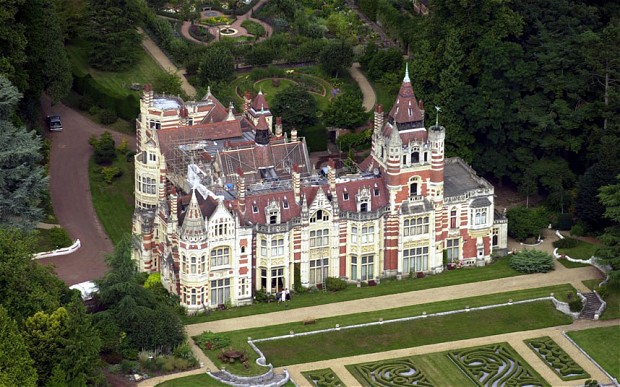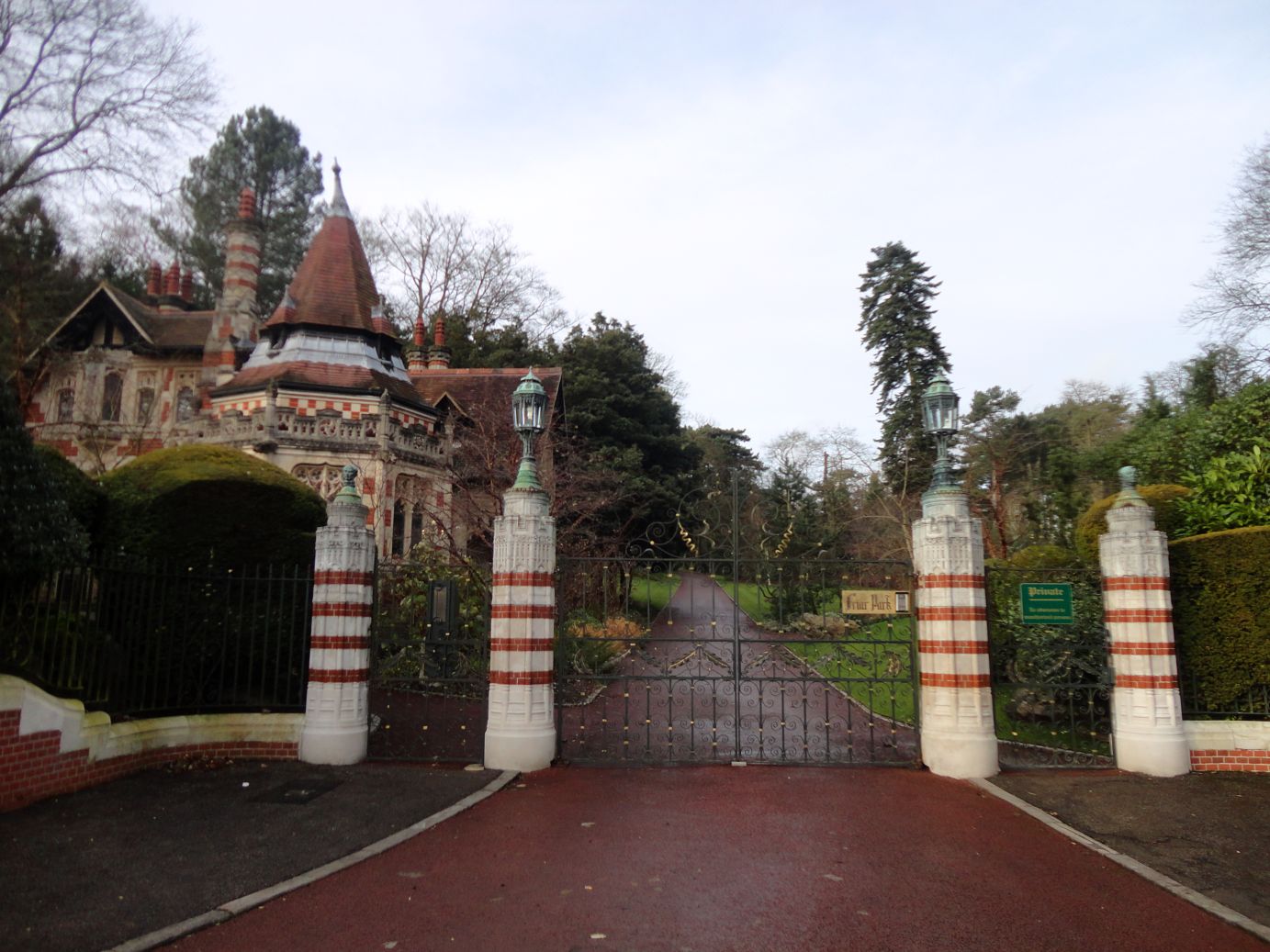Friar Park is a 120-room Victorian neo-Gothic mansion in Henley-on-Thames once owned by eccentric lawyer Sir Frank Crisp and purchased in January 1970 by musician George Harrison.
Since the early 1970s, the property has become synonymous with the former Beatle's home studio, known as FPSHOT. Harrison biographer Alan Clayson has described the Friar Park estate as being "as synonymous with his name as the Queen's with Windsor Castle".
Harrison put the whole property up as collateral in order to fund the Monty Python comedy team's movie Life of Brian after their original backers, EMI, pulled out at the last minute. As a huge fan of the Pythons, Harrison simply wanted to get to see the film − something that his friend Eric Idle has often described as "the most expensive cinema ticket in movie history".
The Friar Park estate was owned by Sir Frank Crisp from 1889 until his death in 1919. The property was then sold at an auction to Sir Percival David. Following their divorce, Lady David moved into the Coachman's Cottage on the Southwest corner of the property when the rest of the estate was donated for the use of nuns belonging to the Salesians of Don Bosco order. The nuns ran a local school in Henley, the Sacred Heart School, but by the late 1960s Friar Park was in a state of disrepair and due to be demolished.
Friar Park has extensive gardens and water features designed by Henry Ernest Milner for Crisp, including a grotto, and stones just underneath the surface of the pond (providing a walking-on-water illusion). The park also includes a sandstone replica of the Matterhorn. Reflecting Crisp's sense of humour, among the statuary is a monk holding a frying pan with holes in it, and a plaque reading "Two Holy Friars". The year Harrison and his first wife, Pattie Boyd, moved in, he was photographed among four garden gnomes located on the main lawn for the cover of All Things Must Pass, and again with his father Harry six years later, with the photo appearing inside the gatefold cover of Thirty Three & 1/3.
Harrison immortalised the grand building and its surrounds in his 1976 song "Crackerbox Palace", which was his nickname for the mansion (after Lord Buckley's home in California). The All Things Must Pass track "Ballad of Sir Frankie Crisp (Let It Roll)" was inspired by Friar Park's history, and the lyrics of later songs such as "Ding Dong, Ding Dong" and "The Answer's at the End" directly quote from the many carvings around the property. His humorous video clips for the likes of "Ding Dong, Ding Dong", "True Love" and "Crackerbox Palace" were all shot within the gardens and grounds of Friar Park, as were the album covers for some of his FPSHOT-recorded Dark Horse acts − Splinter's The Place I Love and the Ravi Shankar's Music Festival from India album being the most obvious.
The mansion was largely open to the public, until the murder of John Lennon in December 1980. Shortly afterwards, the gates were locked and security features such as razor-wire fences and video cameras were installed. Despite these measures, an intruder broke into the residence in the early hours of 30 December 1999, attacking Harrison and his wife Olivia, leaving him suffering a punctured lung, more than 40 stab wounds, and head injuries. In 2009, Olivia Harrison won the right to put in a permanent fence for her protection, to which some of the neighbours objected, out of concern that their cats could be injured by the sharp edges of the razor-wire.
Olivia Harrison has continued to live in the mansion since Harrison's death from cancer on 29 November 2001.











